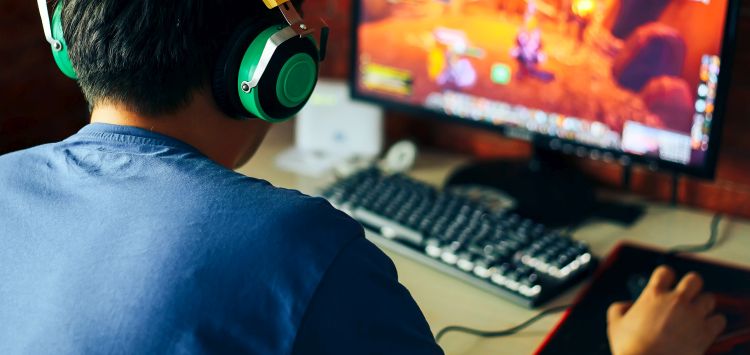Cybercriminals will continue to prey on gamers as long as they seek out free apps and games in the form of unlicensed copies, cracks, and other goodies, and we will continue to highlight the dangers they face. Here are a few we’ve discovered in the last year.
Gamer cyber-attacks
Our experts investigated how cybercriminals profited from gamers who scrimped on both gaming and security, resulting in the download of unexpected apps in addition to (or instead of) the games they expected.
Do you want to see some adverts?
Adware is perhaps the most common surprise that greedy gamers discover in their favorite games. Adware can be very annoying, even if it isn’t usually harmful. Users will be constantly closing banners, pop-up videos, and browser pages they didn’t open because of this uninvited visitor on their computer or smartphone.
Cryptomining is an age-old threat in games.
Cryptominers rank far higher than adware in the hierarchy of bad things users might get from pirated games. Gamers make ideal targets for cryptocurrency freeloaders, thanks to their expensive computers and great video cards — and a miner hidden inside a game with high system requirements can go unnoticed for a long time, while the computer is working for a malicious third party.

Swarez: Danger at the top of the search results,
Most gamers are aware that official games can only be purchased through a specialized store such as Steam. They use search engines to find a “Minecraft crack” or a “virus-free FIFA.” Cybercriminals take advantage of this by setting up websites that offer free keys, cracks, and unlocked versions of games, as well as Trojans, and pushing them to the top of search results. Alternatively, they can use existing warez sites to upload infected pirated copies.
The Swarez loader is distributed in this manner. Users who try to download Minecraft cracks, for example, are redirected to a page with a ZIP archive that contains another password-protected ZIP and a text file with a key. Unzipping the archive installs Swarez on the victim’s device, which then installs Taurus spyware, a Trojan that captures screenshots and steals cryptowallets, desktop files, passwords, and other information stored in browsers.
Android users are the target of a fake Minecraft game.
Minecraft is still a popular cyberattack bait, even on mobile phones and tablets. We discovered more than 20 malicious apps disguised as game mods on Google Play in 2020, and we saw the same thing this year.
The game is also a front for the Hqwar malware, which displays an installation error and asks the user to uninstall the app. In reality, this only removes the icon; the malware continues to operate in stealth mode, harvesting online bank credentials.
Trojan Vesub disguised as Brawl Stars and PUBG games
Vesub, another clever malware, can be found in pirated versions of Brawl Stars and PUBG for Android.
When the malware is launched, it appears to load very slowly before disappearing. When the victim realizes the game isn’t working, he or she gives up. At that point, the icon vanishes from the screen, but the Trojan remains on the device and begins its work.
Data collection is what’s going on during that phony startup: Vesub collects data from the system and waits for further instructions. It can then subscribe the victim to paid services, send text messages from their smartphone, play YouTube videos, visit app pages on Google Play, and open advertising websites while running in the background.

There’s also phishing.
You should know by now that downloading pirated games is far more trouble than it is worth. If that’s the case, your gaming experience has just gotten a whole lot safer. However, you should be aware of another way cybercriminals take advantage of gamers’ desire for freebies: offering 99 percent off game bundles, promising mountains of free or nearly-free in-game currency, and inviting players to participate in fictitious tournaments.
Cybercriminals steal victims’ e-mail addresses, social network names and login credentials, and game information by hiding behind well-known games like FIFA 21 and Apex Legends, as well as GTA Online and Pokemon Go. On the dark web, even without passwords, such information fetches a price. Is it necessary to point out that entering your password on an unofficial site puts your account at risk of being lost?
Even worse, if the victim agrees to provide payment card information for “verification.” You’re well aware of what happens next.
How to get risk-free games
The dangers that gamers face are neither novel nor unusual. Despite the fact that gamers appear to be a relatively risk-averse group, you can play safely by following these simple guidelines:
Only buy games (yes, buy them) from authorized retailers. You can still save money on video games while avoiding pitfalls. Publishers, for example, hold sales on a regular basis and even throw in the occasional giveaway. Waiting for official discounts not only reduces the risk of being infected with malware, but it also helps developers and ensures that you get the latest patches for your favorite games in a timely manner.
Install a good antivirus program on your computer and smartphone, and don’t turn it off. Antivirus software, contrary to popular belief, does not slow down games, especially when configured correctly. Read about 5 best antivirus softwares for gamers.
Want to read more tips about staying safe while gaming? Read this blog!

